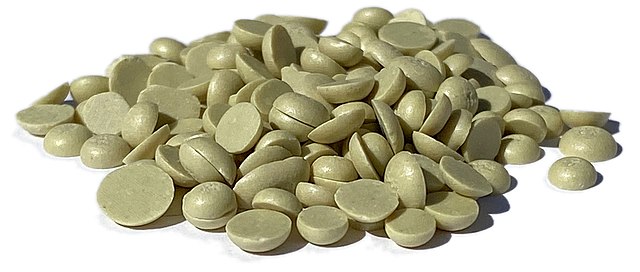Zimbabwe may experience lower-than-normal rains between December, 2023 and February, 2024 due to El Niño’s impact. Hence, on October 11, 2023, the authorities suspended import tax on fertiliser to grant grain farmers a productive window before El Niño sets in.
“Duty is wholly suspended…(for) twelve months” read the government’s notice of October 10, shelving fertilizer imports tax till October, 2024.
The state fears that the weather phenomenon may have a negative impact on the 2023-24 farming season. Cheaper access to fertiliser will help bolster the productivity of the next crop.
The wheat and other grains season in Zimbabwe runs from October to December. The country expects maize production to top 1.5 million tons, shy of the requirement of 2.2 million tons.
Back in April, 2023, the government stated that the country had reaped 2.3 million metric tons of grain in the 2022-23 season. This is despite 2022 being a low production year. The output has been sufficient for both human and animal feed but the situation for the next season remains bleak.
If production falls next season, Zimbabwe will have to import extra grain from its traditional ally, South Africa.
Other grains see improvements
Other cereals, however, have seen production gains in the 2022-23 market year and are likely to improve through the 2023-24 period. These include:
- Sorghum. Production rose to 145,000 tonnes in the 2022-23 season from the previous 5-year average of 122,000 tons. Output will reach 191,000 tonnes next season.
- Wheat. Production rose to 375,131 tonnes in the 2022-23 period. The government’s grain analysts target between 380,000 and 408,000 tonnes next season.
- Peanut and soybean. Production rose last season and will stabilize next season, while barley output will continue to show stability, year-on-year.
- Millet and corn. These are the only two grains that lost in production in the 2022-23 season.
The global fertilizer price rise
Farming fertilizer in Zimbabwe rose by 30% in March 2023, following the Russia-Ukraine war that cut off global supplies.
Zimbabwean farmers with no access to subsidized fertilizer had had to buy a 50-kilo bag for $45. Top soil dressing fertilizer was even costlier, at $60 per 50-kg bag, during this period.
Though manure and other natural compost helps to meet subsistence needs, it is not enough for large-scale farming.
The import duty waiver on fertiliser comes at a time when land owners are preparing their arable land in October. During this period, poor families earn some extra wages through daily labor on plantations. Other householders plant vegetables in their backyards that produce income in two months or so.
What was the impact of the 1997/98 El Niño in Zimbabwe?
A dry spell after El Niño may not come to pass if the favourable 1997/98 precedent is anything to go by.
In March 1998, instead of the predicted drought, farmers in Zimbabwe enjoyed relatively good harvests.
There was still rains in some parts of Zimbabwe in January ‘98 and this helped spare farmers despite sporadic drought. The country was also able to meet almost all its grain needs despite projections anticipating a grain deficit of up to 755,000 tonnes.
So, will the 2023-24 grain season in Zimbabwe also pass a lucky star as it did in ‘98? Time will tell even as the removal of the fertilizer import tax boosts farm productivity.
